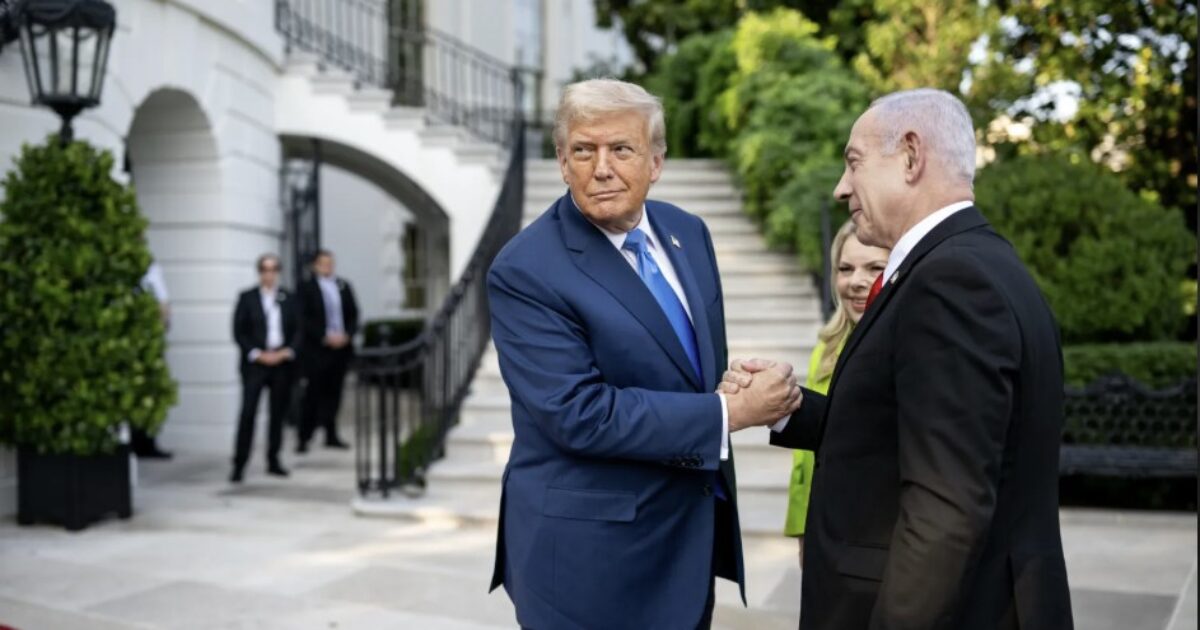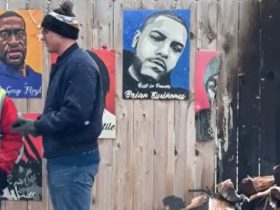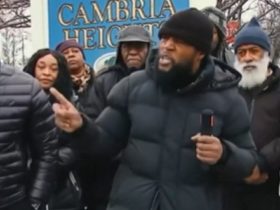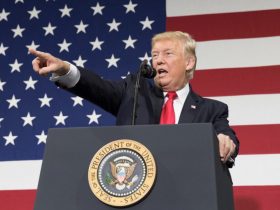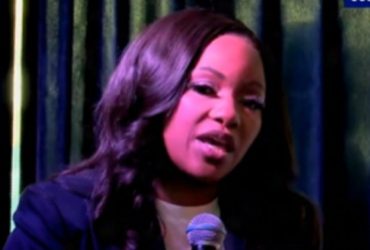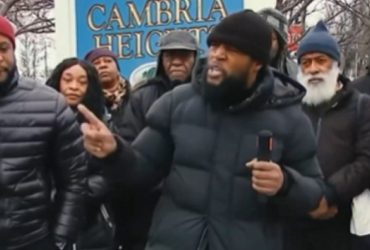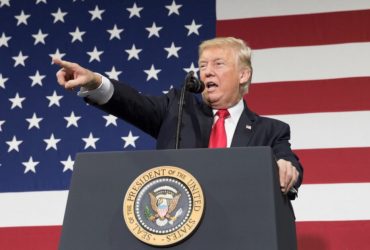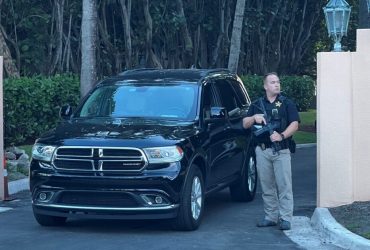Photo Courtesy of Trump White House Archives
This morning, I had just sat down to work when my Kurdish translator came bursting in, shouting, “Trump just landed in Israel!” He was watching the video with tears in his eyes, saying, “I love Trump. I love him. He’s bringing peace.” As Trump deplaned and stood next to Netanyahu, my translator said, “He’s so great, so powerful. Look at Netanyahu, he looks like his little brother, like a little boy next to Trump.” He went on to say that world leaders respect Trump and that the Kurdish people love him. “Even Arab people,” he added.
America deposed Saddam Hussein, and the U.S. was instrumental in ensuring that Kurdistan would enjoy autonomy from the Baghdad government. President Trump defeated ISIS, which at one point reached only about 30 miles from Erbil, the capital of Iraqi Kurdistan. The Iraqi people are grateful that both Saddam and ISIS are gone, and the Kurds in particular strongly support Trump. Now, making peace between Hamas and Israel has catapulted him to a new level of support in this part of the world.
Mainstream media refuses to tell you this, but Trump’s policy victories have been recognized by governments and people around the globe.
Later that day, I was shooting photos around town when I stopped at a coffee cart. When the owner saw my signature Captain America T-shirt, he invited me to sit down. “America good!” said one of the patrons, giving me a thumbs-up. He couldn’t speak much English, but he knew enough to say, “Trump very good.” The coffee shop owner agreed, “Trump good.”
The coffee guys thanked me, praised Trump, and gave me coffee on the house. Photo by Antonio Graceffo.
The coffee guys were Syrians who, like many of their countrymen, had fled to Iraqi Kurdistan seeking safety. Everyone in the region is acutely aware of how much richer, nicer, and safer life is in Iraqi Kurdistan, due in part to the fact that it is the only Kurdistan with legal status.
Iraqi Kurdistan has its own government and military, and when you arrive at the airport, you receive a Kurdish visa. Being self-governed has allowed the Kurds to flourish economically. They have always been comfortable living side by side with Yazidis and Christians, and many of them fought on the front lines against ISIS and other extremist groups.
In Syria, there is also a Kurdish-controlled area called Rojava, officially the Autonomous Administration of North and East Syria (AANES). It is safer for ethnic and religious minorities than the regions outside Kurdish control; however, it is poor compared to Iraqi Kurdistan and is frequently attacked by former al-Qaida extremist Al-Julani’s government forces based out of Damascus. As a result, many Kurds, Christians, and other minorities, and even some Syrian Arabs, are taking shelter in Iraqi Kurdistan.
The coffee guys refused to accept any money, so I went on my way to a tailor shop to get a couple of pairs of trousers repaired. The tailor, Zamar, turned out to be from Syria as well, but he spoke much better English.
“I think Trump’s very fair,” said Zamar. “Not like the other countries. When he makes decisions, it’s always fair for all the countries.” He laughed and added, “Sometimes he says stupid things, like blah, blah, blah, blah, blah. But I think his decisions are always fair, always good. I think peace is very important, and we’re going to have peace now.”
It was interesting that, while he himself had fled a war and could qualify for asylum, he still praised Trump’s immigration policies. “He cares about his country. He stopped the immigration. He told the Syrians, if you go back now voluntarily, I’ll give you a thousand dollars. But if I catch you, I’ll send you back for free. I will deport you. This is good policy.”
Zamar went on to say, “And he said Europe has to do the same thing. Because the people coming into Europe, they hate Christians. They want to destroy us. They’ve wanted to kill us for thousands of years. That’s what they’re about.”
Obviously, Christians don’t like extremism, because Christians are the ones who get killed by extremists. But Kurds also hate extremism. It’s important to remember that the vast majority of ISIS’s victims were Muslims, and the group specifically targeted ethnic and religious minorities, including Kurds.
Zamar refused to take money for repairing my trousers. Across the street, I sat in a café that also turned out to be owned by Syrians. Habib and Ibrahim told me that despite surviving the Syrian civil war and ISIS, they eventually had to flee to Iraqi Kurdistan because of al-Julani’s government, which seized power last November and has already committed two major massacres, one against the Alawite minority and another against the Druze.
Habib said that in Syria, “No one’s feeling safe at all, especially the ethnic groups and the different religions other than the Sunni Muslims. If you stay in Syria, you’re scared. You don’t know what’s going to happen next. Like in Suwayda, Latakia, and Tartus provinces,” he said, referring to the homelands of the Druze and Alawite minorities. “The only ethnic group now that can support or defend themselves and protect their region are the Kurds, and this is because of the support of the United States.”
Coffee shop in Erbil, Iraqi Kurdistan, Photo by Antonio Graceffo
Even though Rojava, the Kurdish region in Syria, lacks the official autonomy of Iraqi Kurdistan and remains in a state of war, they still recognize that it is U.S. support that has kept them going.
Liberals would have you believe that the Iraqi and Syrian people hate the United States or want U.S. troops to be removed, but the truth is the opposite, particularly in Kurdish areas. Habib and his friend said they would love to see the Kurdish region of northern Syria placed under American protection. The Kurdish-led Syrian Democratic Forces (SDF), who protect Rojava from al-Julani’s army, are currently celebrating their 10-year anniversary of U.S. support, and they want more, not less, American involvement.
ISIS attacks are on the rise again in both Iraq and Syria. Kurdistan Region President Nechirvan Barzani told Secretary of State Marco Rubio that “Iraq as a whole needs the coalition forces… we do not think this is the right time for U.S. troops to withdraw from Iraq.”
My Syrian Kurdish friend joined us at the cafe. A very well-educated man with a deep knowledge of the region’s politics, he was happy that Trump had come to Israel and that the fighting would stop. However, he was less optimistic that the peace would hold. His point was that the grievances between Hamas and Israel have not been resolved, and Hamas has not disbanded. So, unless there were going to be American peacekeeping troops on the ground, Hamas or another extremist group would likely launch additional attacks on Israel, and the trouble would flare up all over again.
Another Iraqi Kurdish friend quickly added, “But I still feel safer with Trump than with Biden.”
Antonio Graceffo reporting from Iraqi Kurdistan.
The post TGP Exclusive: Kurds Applaud Trump’s Israel Peace Deal appeared first on The Gateway Pundit.

